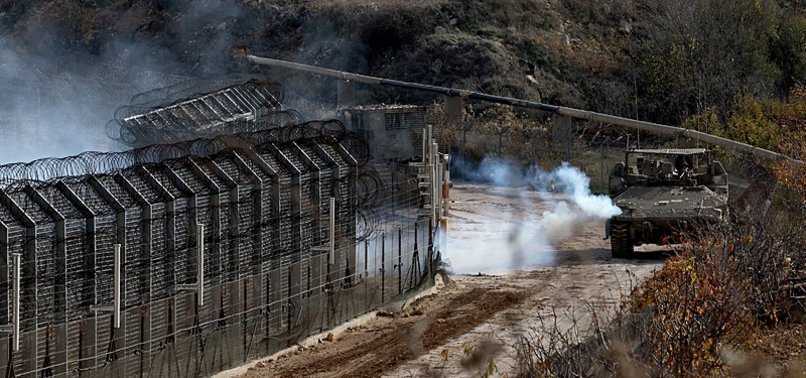The legislative elections are seen as a major step towards democracy in Qatar.
With the Shura Council elections in full swing, Qatar is under a global spotlight in the lead up to the 2 October vote.
While plans to hold the elections were ratified more than 15 years ago, an announcement by Amir Sheikh Tamim bin Hamad Al Thani in November last year took the world by surprise.
Between local debates over the electoral law and a global welcoming of the country’s first ever legislative vote, it is no doubt that the elections wield an important diplomatic role in the country’s internal affairs and politics.
So what exactly is the Shura Council, or Majlis Al Shura?
1972
Formed in 1972 just a year after Qatar declared its independence, the Shura Council was established during the time of Sheikh Khalifa Bin Hamad Al-Thani, who was tasked under the amended Provisional Constitution to organise the structure and institutions of the modern Gulf state.
Shortly after, the Shura Council and the cabinet became the two main pillars of Qatar’s legislative body, with the latter comprising of 20 appointed members at the time.
As Qatar is a Muslim state, the name “Shura” was derived from the Islamic consultation system which establishes laws based on Sharia.
All you need to know about Qatar’s first Shura Council elections
Under the Provisional Constitution when the council was formed, four additional members were allowed to be appointed by the amir if necessary “for public interest”.
The roles of the Shura and cabinet go hand in hand – the latter proposes bills and prepares draft laws for the Council to review, making further recommendations and amendments before the law comes into effect.
1975
By 1975, the Shura Council grew with 10 more appointed members, increasing the number of representatives to 30.
1990
The council later witnessed its first change in its membership, renewing 11 members and appointing 19 others.
1995
Five years later, a second change was made – this time 22 members had their memberships renewed with the remaining eight being appointed.
1996
Five additional members were appointed in 1996, increasing the number of representatives in the Shura Council to 35.
1999
In July 1999 the amir at the time issued a decree for the formation of a committee to prepare the permanent constitution in Qatar that would match the country’s achievements.
In the same year, Doha hosted its first elections for the Central Municipal Council, which was formed in the early 1950s. The elections saw the participation of both women and men.
The Municipal Council focuses on economic, financial and administrative management of municipal affairs and culture. It also oversees laws, decrees and regulations that are related to urban and industrial planning.
2004
In 2004, 21 people had their memberships renewed while the remaining 14 were appointed. This was the same year Qatar established its permanent constitution under the rule of the father Amir Sheikh Hamad bin Khalifa Al Thani, which was published in the Official Gazette the following year.
Under Article 77 of the constitution, the Shura Council must include a total of 45 members, of which 30 are elected by the public while the remaining 15 are appointed by the amir himself.
The memberships of the representatives expire when they either resign or are dismissed from their positions.
The term of the Shura Council lasts for four calendar years starting from the date of the first meeting, with elections being conducted in the remaining 90 days. Members can be re-elected, as per legislation.
2011
Addressing the 40th session of the Shura, Qatar’s amir at the time announced his decision to hold the council’s elections in the second half of 2013.
“We know that all these steps are necessary steps to build the modern state of Qatar and the Qatari human being who is capable of facing the challenges of the age and building the nation, and we are confident that you will be up to the responsibility,” said Sheikh Hamad.
Many praised the former leader’s decision and saw it as a step towards pluralism and public participation. However, the elections did not go ahead as planned.
2013
The father amir stepped down on 25 June 2013, handing over power to his son Sheikh Tamim bin Hamad Al Thani.
“As I address you today, I declare that I will hand over the reins of power to Sheikh Tamim bin Hamad Al Thani, and I am fully certain that he is up to the responsibility, deserving the confidence, capable of shouldering the responsibility and fulfilling the mission,” said Sheikh Hamad.
2017
In 2017, 13 memberships were renewed, however, most notably, four women were appointed to the Shura by the amir – the first time such move for the legislative body.
The women included Hind Abdul Rahman Al-Muftah, Hessa Sultan al-Jaber, Reem al-Mansoori and Aisha Yousef al-Mannai.
Qatar’s Shura Council elections an ‘expansion of civil society’: analyst
In the same year, Amir Tamim also announced preparations for Shura Council elections, which he said would take place in 2019.
2020
In November, Qatar’s amir announced the country would be holding the long-promised elections for its top advisory panel the following year.
Sheikh Tamim said the first-ever vote will take place in October 2021, describing it as “an important step” for the Gulf state in order to “develop the legislative process with a wider participation of citizens”.
2021
In May, Qatar’s cabinet approved a draft law on the Shura Council’s electoral system that presented the details of the criteria needed in order to run for the elections.
The criteria included requirements of candidates’ eligibility, voter registrations and campaigning as well as other details concerning the first of its kind election.
Under the new draft law, candidates must be able to run based on the constitution and legal rules of constitutional nature.
Then in July, the Ministry of Interior [MOI] announced the formation of a Supervisory Committee and multiple other executive committees dedicated to dealing with the Shura Council elections.
The Supervisory Committee was established to take charge of the preparation of the elections while overseeing the proper conduct of the electoral process. The supervisory group will work closely with the executive committees, all of which will be separated into legal, security, technical, media, and logistical bodies.
By the end of the month, Qatar’s amir approved an electoral law under which citizens could vote for 30 members of the 45-seat legislative council while the remaining 15 members will be selected by the amir himself.
The law laid out the drafting process of the elections, who can vote, who can be nominated, the next steps following the finalisation of the candidates, and the electoral process. Furthermore, it stated that the Election Committee will be drawing lots with the presence of the candidates if a tie occurs.
Candidate registration opened in August, when the Supervisory Committee for the Shura Council elections began receiving applications. This marked the second phase of the electoral process.
Then on 22 August, Sheikh Tamim announced the official date for the vote: 2 October.
By the end of August, the preliminary list of nominees for the elections were announced, comprising of 300 Qataris. At least 40 women submitted applications to register as candidates for the Shura Council elections.
On 15 September, the list of the finalised candidates was released, which included 284 candidates, including 28 women, from a total of 30 electoral districts.
Follow Doha News on Twitter, Instagram, Facebook and Youtube







